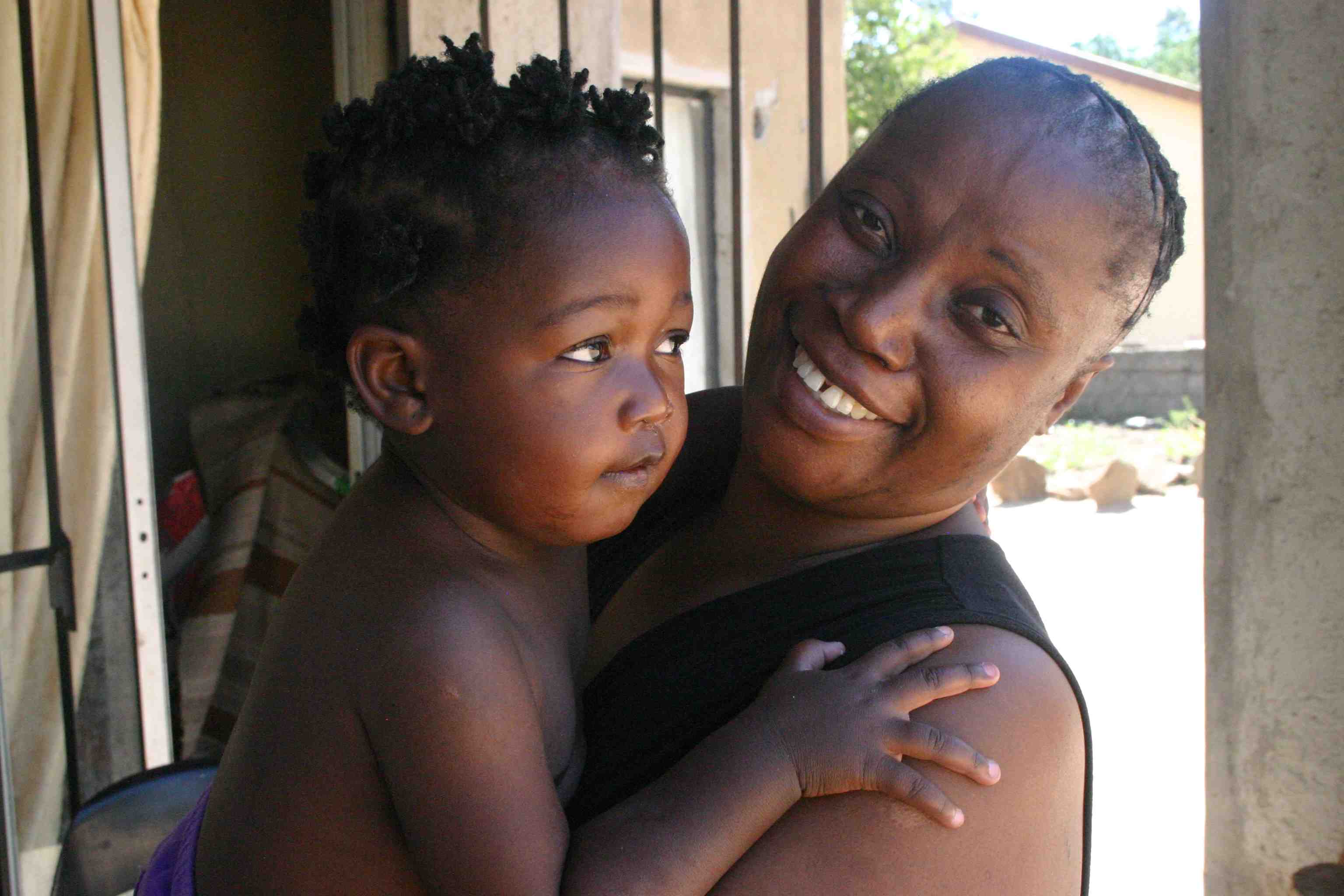
21 Dec MalaMala’s secret millions
Two years after South Africa’s most expensive land claim settlement was concluded, post-restitution arrangements for the management and operation of the MalaMala Game Reserve are taking shape. Who is really benefiting from the deal?
Investigation and photographs by Michelle Nel
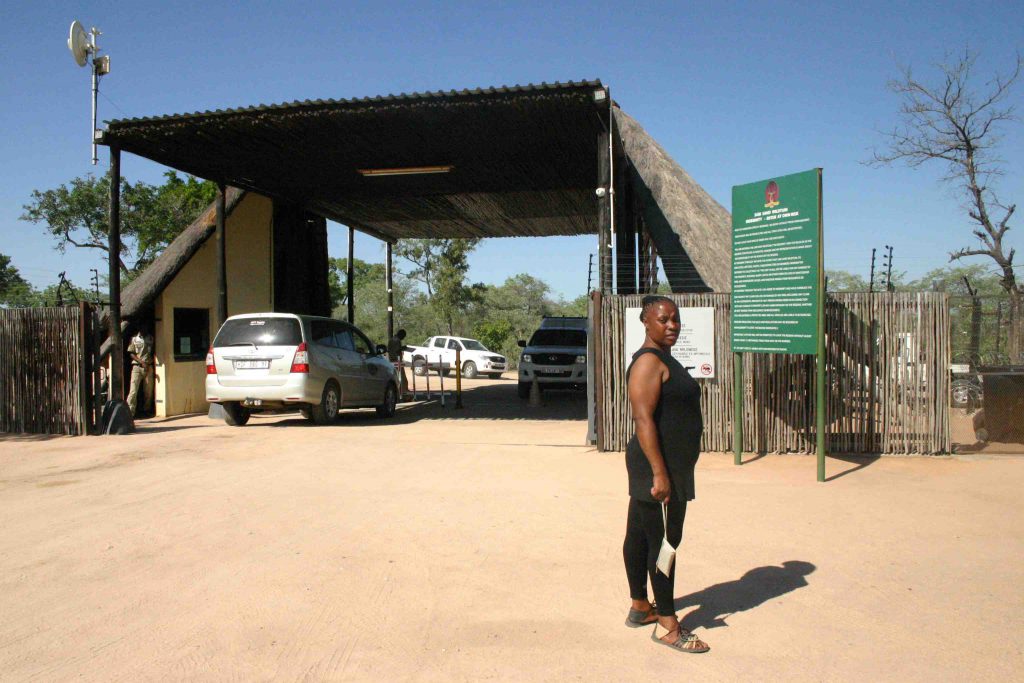
Newington Gate, entrance to the Sabi Sand Game Reserve. Inside are some of the most expensive game lodges in the world: MalaMala, Sabi Sabi, Londolozi and Singita
Two 11-year-old girls are collecting kindling and firewood late one afternoon in November 2015. They are pushing a wheelbarrow along the firebreak and game fence that divide the most expensive wildlife viewing land in South Africa from one of the poorest villages in Mpumalanga, called Lilydale.
As the girls break sticks and load, parties huddle in stuffy rooms thrashing out one of the most lucrative management deals for a restituted game lodge in the country.
Vumelana Advisory Fund is trying to keep the peace between the previous owners of Mala Mala Game Reserve, officials from the Department of Rural Development and Land Reform and community members.
Everyone is playing hardball, but the final deal could potentially help electrify more of Lilydale and spare the girls from the daily drudgery of collecting firewood.
Out-of-court deal
In 2013 a R1-billion out-of-court settlement between Land Reform Minister Gugile Nkwinti and multimillionaire MalaMala owner Michael Rattray flattened most of the national Land Claims Commission’s budget for that year.
The MalaMala claim was the biggest in post-1994 South Africa. To put it in perspective, the price of 36,489 claims involving about 85,000 urban households made by December 2002 was R1.2-billion. Restitution for rural claimants mainly took the form of the return of land, and by December 2002 about 571,232 hectares had been restored at a cost of about R442-million.
In the year prior to the MalaMala deal, R1.6-billion was used nationally to buy land for 549 claims, and in 2011 less than R1-billion was spent on 252 claims.
“This is the most controversial price paid for a single land claim. The Land Claims Court itself said the R700-million price tag could not be justified,” says human rights lawyer Richard Spoor.
By October 2013 MalaMala was registered in the name of the Mhlanganisweni Communal Property Association, since renamed the N’wandlamharhi Communal Property Association (CPA).
A group called INT Capital was mandated by the community to help it facilitate the deal with the government. Hazyview headmaster Perry Sambo was the chairperson of the CPA, but has since been replaced by Derick Mthabine.
Henk Smith, a lawyer with the Legal Resources Centre, a human rights law clinic, says the agreement signed between the Rattrays, the land claims commissioner and the minister was designed to reveal nothing. Even if one could view the settlement deal, which has been kept secret, there would be hidden conditions.
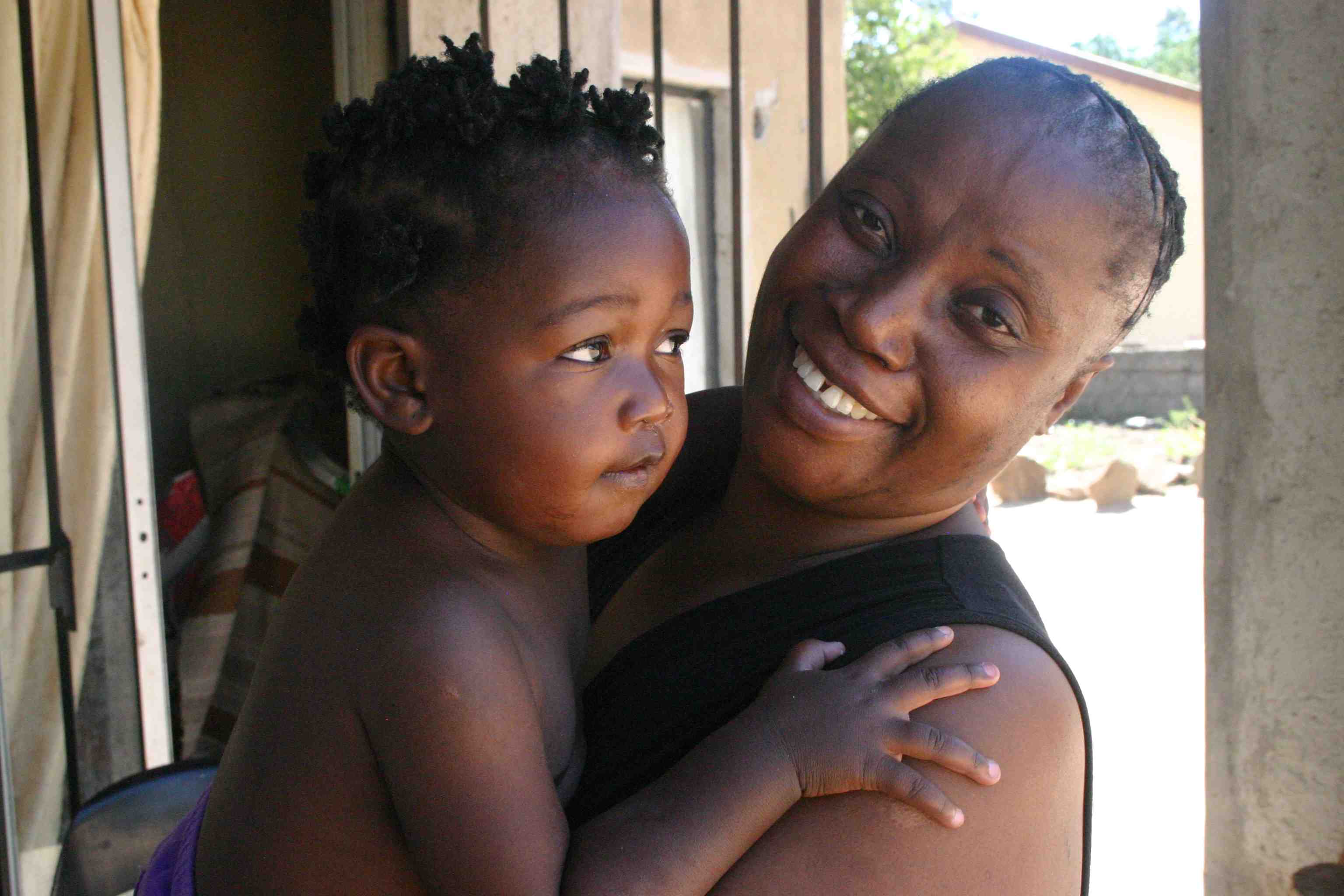
Loraine Mabuye has skills, luck and gumption. She works as a chef for an ecotourism training academy
Communal property association
Over the past two years, the deal has not brought tar to the potholed gravel roads in Lilydale, nor piped water.
Loraine Mabuye, a widow in her 40s with three children, took Oxpeckers to the Newington Gate of the Sabi Sand Game Reserve. Inside are some of the most expensive game lodges in the world: MalaMala, Sabi Sabi, Londolozi and Singita.
Inside are also the graves of her ancestors. “We are not allowed to visit them,” she shrugs. “We also haven’t had water for months.”
Her mother, Dinah Mhlongo (65), and father Jimson Willie Mhlongo worked for the owner of Singita, Luke Bailes, in Hillcrest, Durban, and at Singita. Singita Sabi Sand has been owned by the Bailes family since 1926.
Mhlongo says she did put in a land claim, but has received nothing. Her husband, J Mhlongo, was listed on the claim for Castleton farm, one of the Singita properties, along with I Sibiya on behalf of Amashangana Tribal Authority, the Jonglilanga Tribal Authority and the Mhlanganisweni Community.
“I made a claim but my name was not in the book,” says Dinah Mhlongo.” Even if you got something, you might get R10,000 to share between 15 people. A lot of people got nothing.”
There are very few jobs in the area. Loraine Mabuye has skills, luck and gumption. She works as a chef for an ecotourism training academy.
She has two older sons and a nine-year-old daughter named Charlene Dimakatso, and is looking after her sister’s three-year-old toddler.
“My 18-year-old son is looking for a bursary to study. My other son smokes drugs. It’s a problem,” she says. Her late husband, Lucas Abel Mabuya, worked in Sabi Sand as a gardener and handyman in camp.
Does she know the chairman of the N’wandlamharhi CPA, Derick Mthabine? “His mother lives over there,” says Mhlongo, waving her hand. “In a small house behind that big house.”
Has the CPA reported back to the community? “A November 28 meeting was cancelled,” she says. The reason given was that the CPA was going to see the government in Johannesburg.
Oxpeckers tried to correspond with Derick Mthabine on a number of occasions, not least to ask how he manages the long commute between Lilydale and his job in Nelspruit, where he works as the marketing coordinator at Standard Bank Group. He failed to respond to any emails or calls.
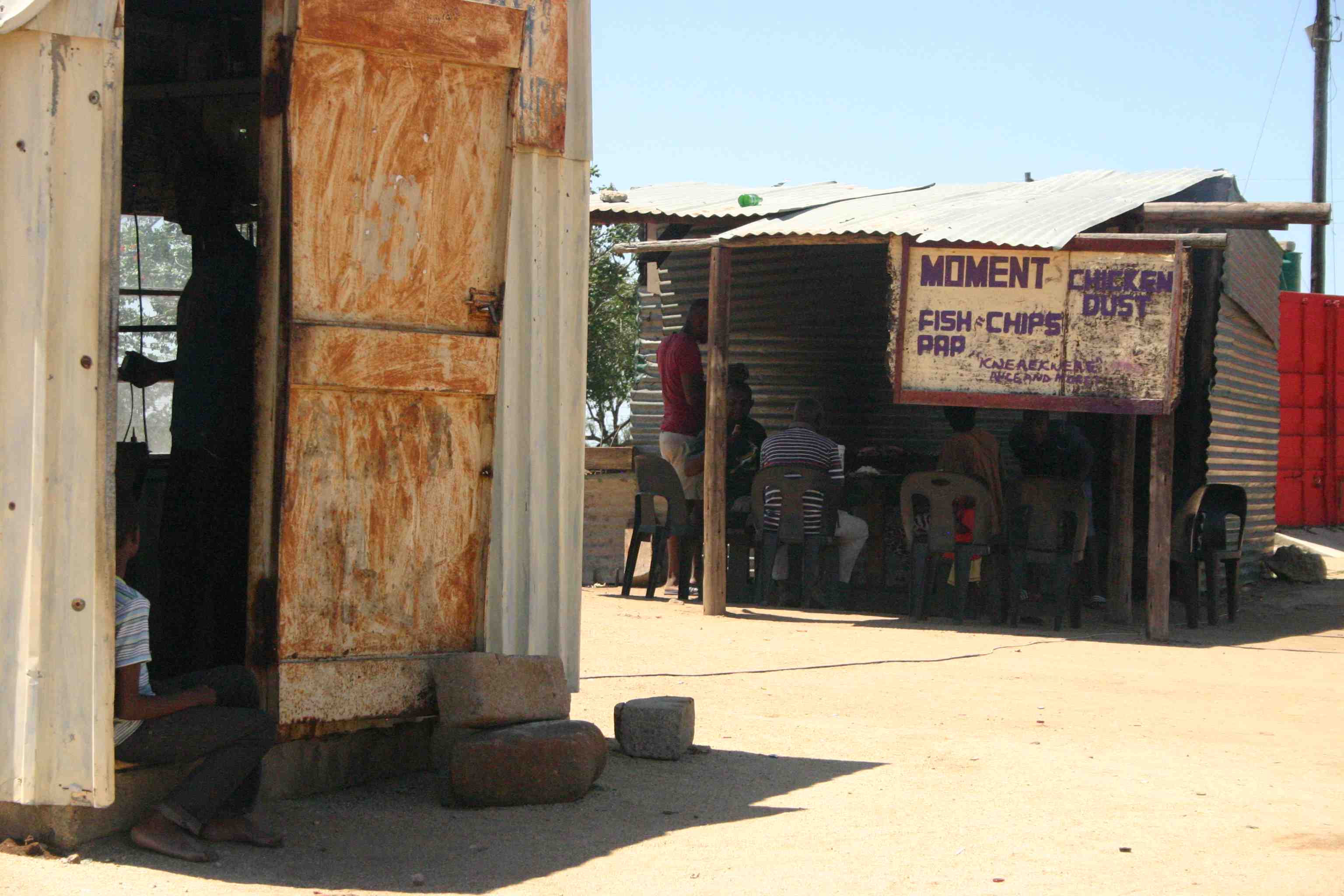
The Lilydale village centre. According to the School of Public Health at Wits University, this is one of the poorest areas in South Africa
Post-restitution arrangements
In early December 2015, Minister of Rural Development and Land Reform Gugile Nkwinti concluded post-restitution arrangements for the management and operation of MalaMala.
In terms of a 20-year co-management agreement, the reserve will be managed in a partnership between the following players: the founder and previous owner of MalaMala, Michael Rattray; Stephen Saad, who owns the adjacent andBeyond Kirkman’s Kamp; and representatives of the N’wandlamharhi CPA.
According to the agreement, the CPA are equity shareholders in the business and will “derive benefits including income from multiple revenue streams, job creation and wage generation, skills transfers, participation in management structures, and on-the-job training and mentoring for members of the community”.
It is hinted that there will be infrastructural development in the surrounding villages. According to the School of Public Health at Wits University, this is one of the poorest areas in South Africa.
The unit’s research shows many villagers subsist on piece jobs and gifts of maize meal from their poor neighbours. Over half the deaths of children under five are from kwashiorkor or diarrhoea.
Many households are supported by migrant labour, and some 60% of households receive child support grants. Unemployment is 60% among families not supported by migrant labour.
The HIV rate among pregnant women is 25%. HIV/TB and cardiovascular disease have brought the life expectancy rates to 60 for women and 52 for men.
About 85% of older women and 71% of men have no formal education, and among 50-year-olds 50% of women and 37% of men have no formal education.
At Agincourt, a few kilometres away from Lilydale, one-third of residents are of Mozambican origin. There is a fair degree of xenophobia in Lilydale, even though everybody speaks Shangaan. Perhaps this is because the community is quite feisty – the Shangaan name of the village is Nkinyamahembe (fold your shirts for battle).
Questions in parliament
In May 2015, TW Mhlongo, a Democratic Alliance member of parliament, asked the minister of rural development and land reform how much money had been paid to the local community in respect of rental.
The reply, in June, was R11,9-million. It was paid into the trust account of Du Plessis & Gilfillan Attorneys, who represented the community through the land claims process, and none had been spent at the time of reply.
It was going to be distributed per household, but “at the moment beneficiation is in the form of development”, the reply stated.
The minister added that N’wandlamharhi CPA executive members are not paid, and that the land reform department has an oversight role over the CPA.
“The department ensures that all CPAs remain compliant with the CPA Act. All CPAs are expected to hold annual general meetings, submit annual financial statements and conduct elections for executives,” he said.
The department promised development in the form of 15km of fencing and a borehole for livestock farmers at Dixie village bordering the Sabi Sand; construction of 320 toilets in Dixie, Dingleydale and Huntingdon; the supply of 300 portable water-rollers for Dixie, Dingleydale and Huntingdon; and an irrigation scheme at Dingleydale.
“MalaMala was dealt with in two phases,” the department told Oxpeckers in response to questions in May 2014. “Phase one was the acquisition of the land, and this was done internally (valuation of the land was outsourced).
“Phase two related to the development of the land and the management of the business of the land. The department has appointed transactional advisors to help with this.”
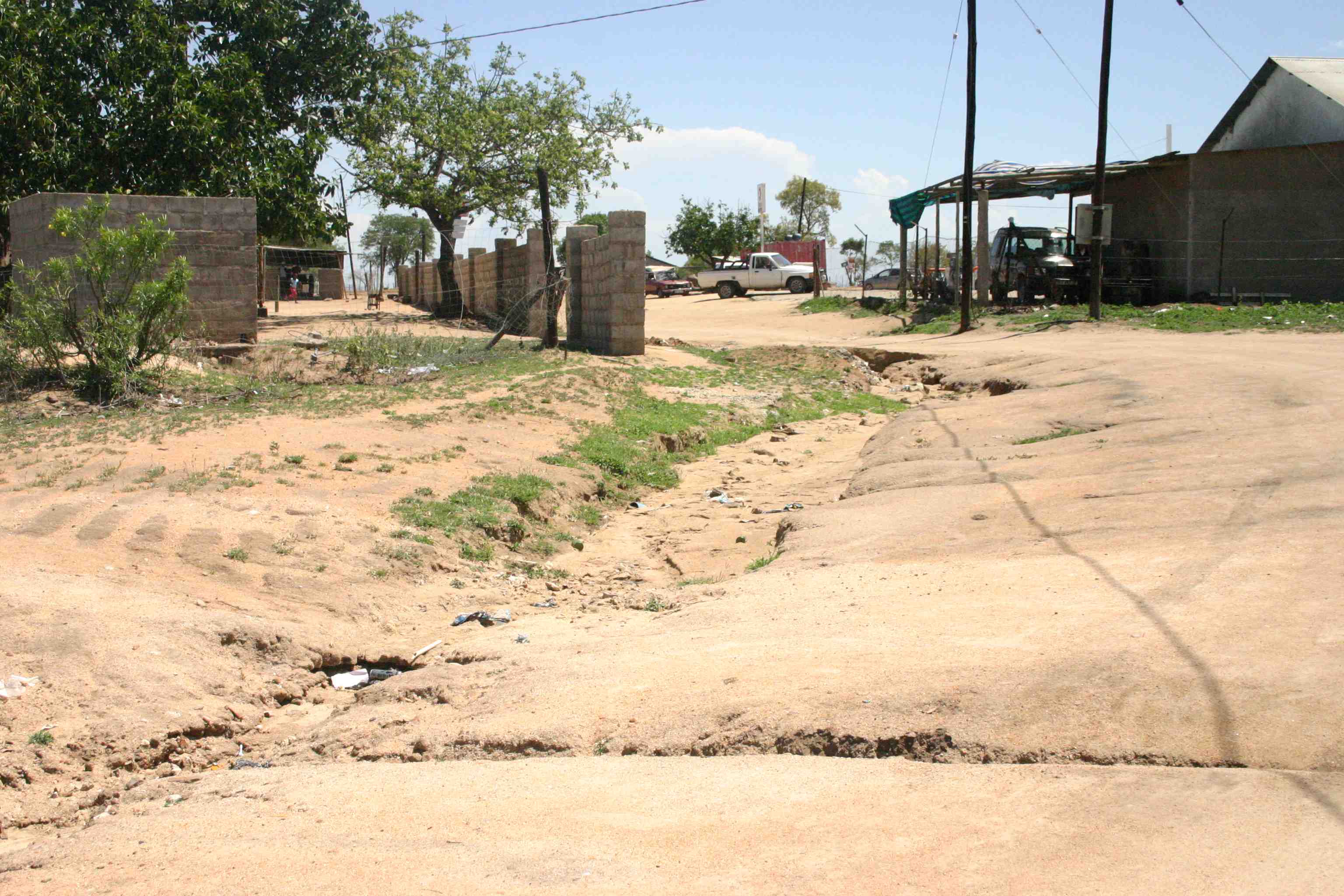
A typical road in Lilydale. Rental of at least R11,9-million has been paid into a community trust account, but none had been spent by June
PAIA requests
The CPA’s constitution and a list of beneficiaries were drawn up by Louise du Plessis, a legal representative of the communities at the time the deal was settled. Du Plessis told Oxpeckers her computer with the information had crashed and she referred inquiries to the CPA chair Mthibane, who ignored all messages.
Oxpeckers joined forces with the Open Democracy Advice Centre to launch a Promotion of Access to Information Act (PAIA) request to the Department of Rural Development and Land Reform.
Two PAIA requests were lodged in November 2015. One asked for details on the nature of the partnership established between Mala Mala and the N’wandlamhlarhi CPA; the second for the list of criteria used by the department in determining the expropriation settlement agreed to between the Department and the Rattrays; and the deed of sale established.
Oxpeckers is also interested in seeing the constitution of the CPA, as well as its annual report. Nothing has come back from the department as yet.
A search of deeds office documents revealed that Alison Morphet, Kenneth Norden, Michael Rattray and Norma Rattray are listed as directors of MalaMala Ranch. This is a travel and tourism business private company and will probably be the company that partners with the CPA on lodge management.
MalaMala Ranch was originally registered in 1993. David Mabunda, then chief executive of SANParks, was registered as a director on April 1 2010.
Mabunda resigned from the MalaMala board on November 30 2013, a month after the property was transferred to N’wandlamharhi CPA. His resignation was registered on April 24 2015.
On October 3 2014, the nature of the MalaMala Ranch business changed, but no further details were given in the deeds.
Director Alison Morphet, who also acts as the media relations manager at MalaMala, said she could not provide any further clarity because the talks between the CPA and the department, brokered by Vumelana, were at a “sensitive stage”.
Morphet confirmed that a management deal had been signed, but she could not provide details.
Vumelana said it could not speak about the management deal while negotiations were in progress.
Pawns and power
Mabunda’s role in the MalaMala deal made headlines after he allegedly received R81-million from the settlement. The figure arose in an audit report commissioned by the SANParks board to assess whether Mabunda should be appointed as CEO for a third term.
The investigation unearthed “a serious conflict of interest” as he was head of SANParks, as well as a director and shareholder of MalaMala. Mabunda was not reappointed at SANParks and is currently chief executive of Ezemvelo KZN Wildlife, the provincial authority in KwaZulu-Natal.
In his defence, Mabunda said he was given permission in 2009 by then board chairperson Kuseni Dlamini to acquire shares in MalaMala. According to Mabunda, he had also declared his directorship to SANParks.
Henk Smith of the Legal Resources Centre says the Mhlangwenisi/ N’wandlamahlarhi community was used as a pawn. The real players were the lawyers and politicians.
“It’s the same as is happening in the redistribution of mines,” he says. “The same actors are also in the agriculture industry and empowerment. The players say they will only restitute land if you sign a deal with a strategic BEE [black economic empowerment] company.
“The Mhlangwenisi/ N’wandlamahlarhi community lawyers should not have settled. This settlement will come back to bite the government. Going forward, communities will not believe that the government has no money to buy land.”
Spoor says land restitution has been reduced to an administrative process. “There is no judicial oversight,” he says. “The original concept was that you would file claims, the commission would investigate and then they would bring the claim to court. The court would decide if the claim was valid and whether the community should get the land back, or be paid compensation.
“Less than 1% of claims are ever adjudicated by the land claims court. Most are settled by an agreement between the land owners and the land claims commission.”
Spoor reckons there are no unhappy sellers. “It’s a bustling market. The state is buying land to redistribute it. But what determines the priorities? Or is it simply determined by who is at the front of the queue?
“There is little emphasis on the merits of a claim. Having a good claim is not a criterion. In fact, there are no criteria. There is also no policy. This violates the principle of legality. There is also no oversight. It is a total void.
“The ‘merits’ that seem to work at the moment are whether the community is well organised and politically connected.”
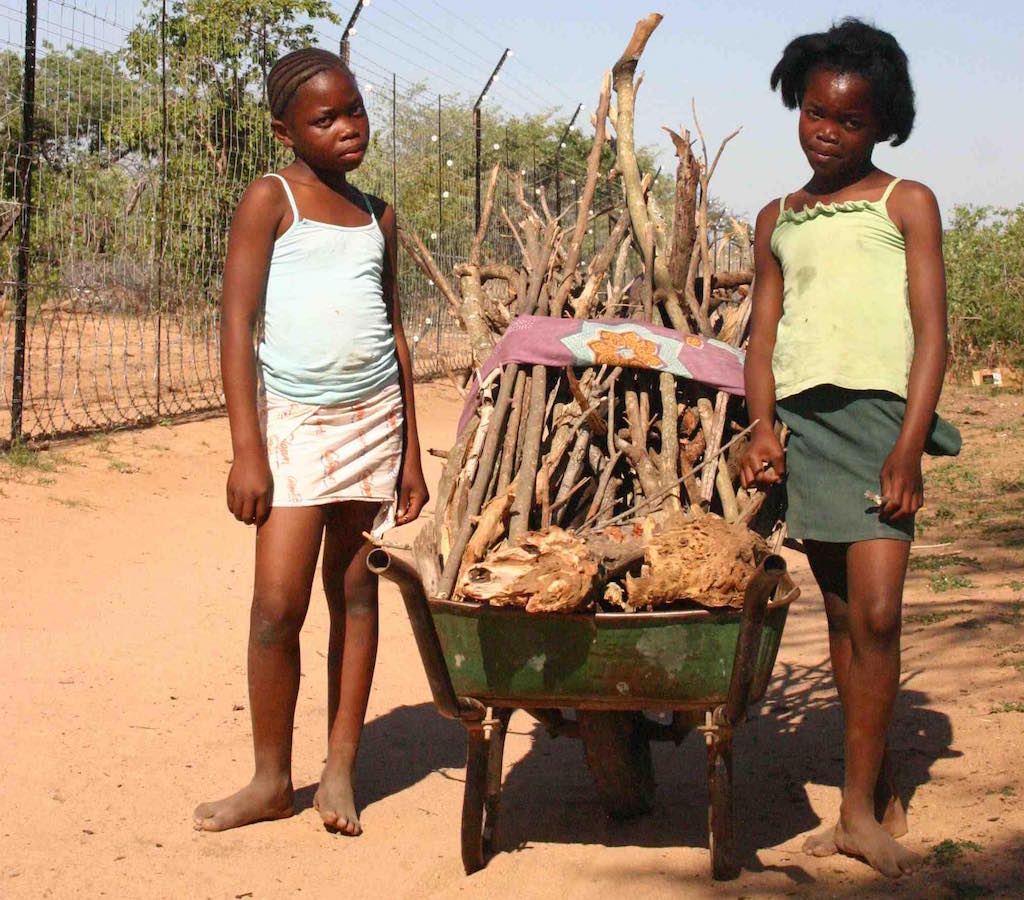
Girls collect firewood along the game fence that divides the most expensive wildlife viewing land in South Africa from Lilydale
Historical claims
The validity of the MalaMala land claim was barely challenged by any of the parties. The main issue at hand was the level of compensation.
Prior to the settlement deal, the Land Claims Court had ruled that compensation should be market-related, and that a price tag of between R700-million and R800-million for MalaMala would render restoration unfeasible. The decision was appealed in the Constitutional Court, but the case did not proceed because Nkwitini and the MalaMala directors settled out of court.
However, experts argue that the beneficiaries did not comprise a true community. Historian Peter Delius, who has researched historical settlements in Mpumalanga, told Oxpeckers that in the case of large and geographically diffuse claimant groups such as the Mhlangwenisi/ N’wandlamahlarhi, there is no evidence of overarching community structures prior to their forced removal from the Sabi Sand game reserve during apartheid.
What confronted the Regional Land Claim Commissions in Limpopo and Mpumalanga was a tangled web of unique family histories spanning generations and shaped by a context of often marginal to non-existent chiefly power, and high levels of mobility.
Progress was made mainly through clustering claims together under umbrella proclamations issued on the basis of little or no research. Creating and amalgamating overarching communities was the favourite solution.
In Mpumalanga more than 3,000 land claims lodged before 1998 have still not been researched. Many of them are conflicting; others are lumped together in arbitrary ways, Delius says.
“Also troubling is the fact that some claimant groups – notably the Mhlanganisweni group – appeared to have been particularly strongly supported by the Land Claims Commission and various legal representatives,” he says. “The Mhlanganisweni claim was gazetted as the overarching claim without a process of consolidation of claims being agreed on or formalised.
“This step caused considerable confusion and resentment. Tragically, as a result many of the elderly claimants who hoped in 1998 that they would receive some recognition of and compensation for the losses they had suffered, have died without having received any relief.”
The claims to the farms that constitute MalaMala were first lodged by 1998. Negotiations for settlement of the land claim began in earnest in May 2008 when an initial formal offer was made for the acquisition of the 12,855 hectares.
“The name of the community changed from Mhlangwenisi to N’wandlamahlarhi,” says Delius. “What seems to have happened is that the beneficiary community was broadened to include a wider grouping of claimants from other farms in the Sabi Sand area.”
It is questionable how inclusive this expensive MalaMala deal is. It could become more inclusive if more benefits are felt in Lilydale itself. Roads need tar. Energy and water supply should be secured. The community desperately needs employment.
Experts fear that the deal could set a benchmark on high prices, making land restoration unaffordable in future. Hopefully the only precedent it sets is in good land management and sustainable benefits for the claimant communities. Oxpeckers will be watching this deal going forward. – oxpeckers.org
This three-month investigation by Oxpeckers was sponsored by Transparency International Secretariat.
What do MalaMala’s neighbours say? Click to find out how the MalaMala deal will affect other landowners in the Sabi Sand Game Reserve: are they running for cover, or angling to be part of the bonanza?
